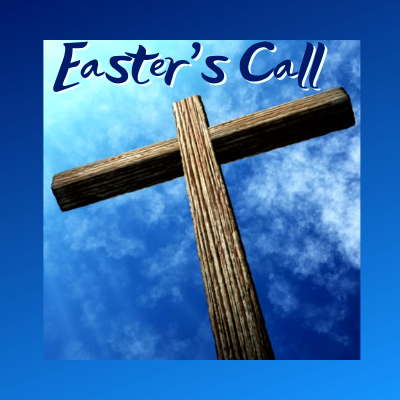TALKING POINTS / WALKING POINTS
Dig deeper into the message during the sermon, in your personal Bible study, or with your family or Community Group in application-driven discussion.
COMMUNITY GROUP LEADER’S GUIDE
SERMON SUMMARY
Luke 24 is unique in that it actually covers the entire day: the first part talks about what happened in the morning, when Jesus rose from the dead; the middle of the chapter talks about Jesus’ discussion on the road to Emmaus; the final part of the chapter talks about Jesus’ evening appearance to his disciples.
1. The resurrection of Jesus Christ is a paradigm-shattering historical event. It’s very common today for people to say that Jesus’ resurrection didn’t really happen. These miracle stories, they say, were written to symbolize the kind of life we should live. If that were the case, what “life principles” are we to glean from Jesus eating fish with his disciples (24:41-43)? Truth is, it doesn’t symbolize anything. Luke included this account because it’s evidence. The issue wasn’t Jesus’ hunger, it was the disciples’ unbelief. He ate fish in order to prove that he wasn’t a ghost. Luke recorded it because it happened. The historical accounts record lots of obscure details which serve as evidence that Jesus was actually raised bodily from the dead. For example, women were the first to report the resurrection—but women’s testimony was not accepted in Jesus’ day. If you were making up the story of the resurrection you would have chosen men of high social status as your witnesses. That Jesus rose from the dead is a paradigm-shattering historical reality. A lot of people do not want Christianity to be true (for then there is a God to whom we are accountable)— and that makes a mockery of our perceived independence. The resurrection shatters the paradigm that “all religions are basically alike” (John 14:6). It makes our desire to pick and choose which parts of the Bible we’ll believe and obey irrelevant. Historical facts are often inconvenient; you can’t just dismiss them.
2. The resurrection of Jesus Christ is the key to understanding the message of the entire Bible. Jesus told his disciples, “The whole Bible is about me.” (v. 44-45). They’d been with Jesus for three years, but they couldn’t really understand the message of the Bible, until they saw him risen from the dead. Like Saul of Tarsus, when they heard Jesus’ claim that he was the Messiah, they thought it was crazy! But after he dramatically met Christ on the road to Damascus, in a flash of insight, it all came together for him. Take the book of Isaiah for example. The first half of Isaiah is about a strong, kingly Messiah, but the second half of Isaiah is about this mysterious suffering servant figure who suffers for the sins of his people. Saul realized, “Wait a minute—it’s all talking about the same person! That’s it! Jesus was the suffering servant who died for the sins of his people. And then, just as predicted, he rose from the dead as our resurrected Lord! Wow—why didn’t I see it before?!” The same is true for God’s promise to Abraham, the sacrificial system, and the books of Ezekiel and Jeremiah; the New Covenant is all about the Lamb of God who takes away the sin of the world. From the vantage point of the resurrection, Saul was forced to rethink everything he thought he knew about the Bible and the Messiah.
3. The resurrection of Jesus Christ is the strongest message of hope for the world possible. Back in Jesus’ day, just as today, many people thought, “When you die, that’s it. There’s no future beyond this life.” But the resurrection gives us a hope for a future that is personal, certain, and unimaginably wonderful! At death, everything doesn’t go permanently dark. Our future is personal. False, eastern religions promote the idea that when we die, we become part of the All Soul of Universe (the “circle of life” of the Lion King). But the deepest desire of our hearts isn’t to be stardust or worm food—it’s to continue to exist in love relationships. Only persons can love. If there is no one to love, and no one to love you then all that awaits us is an eternity that is loveless, meaningless, and hopeless. But because more than 500 eyewitnesses saw Jesus after he conquered the grave, his resurrection guarantees ours, and that we have a future that is personal. Our future also is certain. Other (false) religions promise heaven— but only if you’re good enough. Doesn’t that just fill your heart with confidence?! But the resurrection is proof that Jesus completely paid our sin-debt, so our future is certain! The resurrection is our “receipt”— marked “Paid in full”! Our future is unimaginably wonderful. The resurrection guarantees a real, physical, glorified “us” in a glorious new heaven and new earth. Everything sin took from us is restored— and more! Because the resurrection of Jesus is true, if you believe in him, you are not going to miss out on anything! Do you believe Jesus Christ was raised from the dead? You should, because of all the historical testimony, and because only the resurrection meets the deepest needs of the human heart.
APPLICATION / CHALLENGE
Trust the resurrected Christ to pay for your sins—and to give you a hope for the future which is personal, certain, and unimaginably wonderful!
TAKE ONE STEP
Each week, write down one doable concrete step of obedience, small or large, that you will put into practice this week. (James 1:22: “But prove yourselves doers of the word, and not merely hearers who delude themselves.”)


